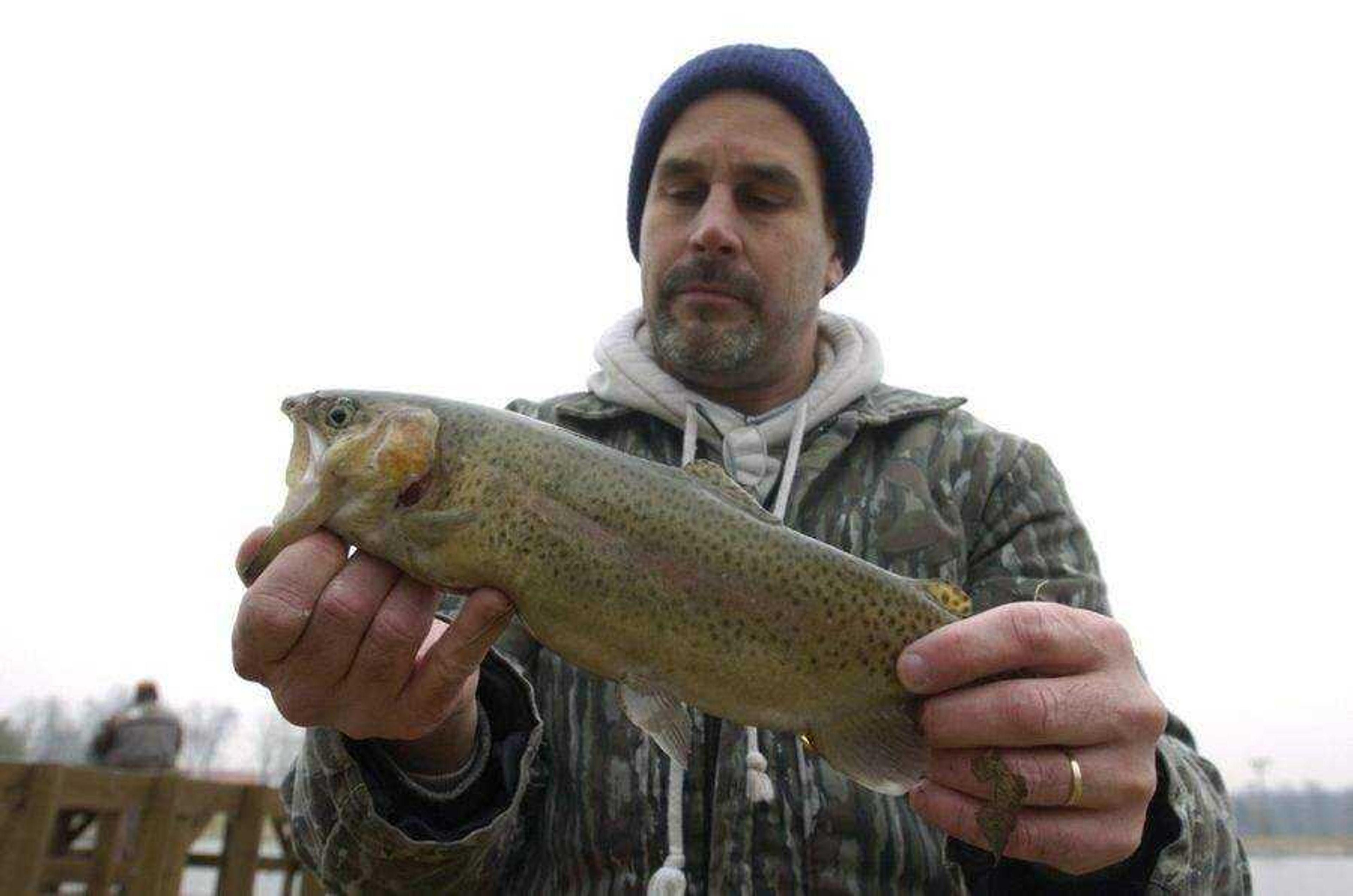Jackson's Rotary Lake restocked after trout die-off
The parasite problem plaguing Jackson's Rotary Lake has been solved and the lake was restocked in anticipation of the opening day of Missouri's trout season, the Missouri Department of Conservation said. In December, anglers and park workers began noticing an unusually heavy death rate among the trout stocked into the lake on Oct. 30. An investigation found that the fish were infected with a tiny crustacean called a copepod that attaches itself to the gills and inside the mouth of the fish...
The parasite problem plaguing Jackson's Rotary Lake has been solved and the lake was restocked in anticipation of the opening day of Missouri's trout season, the Missouri Department of Conservation said.
In December, anglers and park workers began noticing an unusually heavy death rate among the trout stocked into the lake on Oct. 30. An investigation found that the fish were infected with a tiny crustacean called a copepod that attaches itself to the gills and inside the mouth of the fish.
In all, 493 dead fish were collected, said Salvador Mondragon, a fisheries management assistant with the conservation agency's Cape Girardeau Regional Office. Few fish have died since, and the life cycle of the copepod is long enough that the 500 trout stocked on Tuesday won't be affected, Mondragon said.
"We have continued to monitor the lake to make sure all the parasites were eradicated from the lake," Mondragon said. "We were just monitoring the fish that were surviving and we went out a couple of times to take some samples and evaluate the fish."
Rotary Lake is stocked with trout in late fall each year when water temperatures fall enough to keep the fish alive. Trout are cold-water fish and each spring, as water temperatures rise, any trout that survive the open season die as water warms in the late spring and summer sun.
In all, 500 more fish, averaging one pound and about 12 to 13 inches in length, were stocked into the lake.
The fish that were infected came from a private hatchery that sells to the department, Mondragon said. The hatchery has been traced as the source of the parasite infection. While fish from the hatchery have been stocked into other lakes and streams, no other waterway beside Rotary Lake experienced a major fish kill, Mondragon said.
The opening day of trout season, when anglers will be allowed to keep the fish they catch, is Feb. 1. Until then, the lake is open for fishing but anyone catching a trout must return it to the water. A fishing license is required for any fishing activity at the lake in City Park. But after Feb. 1, anglers intending to keep the fish they catch must have a trout permit as well, Mondragon said.
The department is still studying why the fish at Jackson's lake died while those stocked in other locations did not, Mondragon said. The fish could have been subject to stress while they were moved, or the lake could have concentrations of algae that depleted the oxygen supply. After the evaluation is completed, he said, one possible measure would be to use a herbicide of some kind on the lake to cut down on algae growth.
All the newly stocked trout were raised in a state-operated hatchery, Mondragon said.
For more information, check back at semissourian.com or read Friday's Southeast Missourian.
Connect with the Southeast Missourian Newsroom:
For corrections to this story or other insights for the editor, click here. To submit a letter to the editor, click here. To learn about the Southeast Missourian’s AI Policy, click here.








